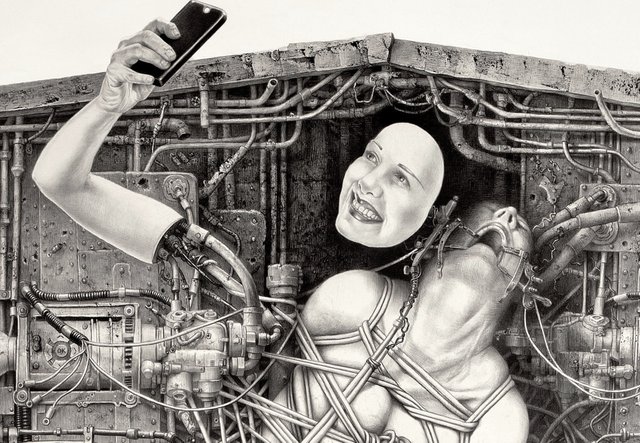Tech Denialism: From Crypto Skepticism to Guided Adoption

A lot of players in the blockchain industry act surprised at how many people embrace crypto skepticism. Even after a decade of success, naysayers believe bitcoin and cryptocurrency equate to an elaborate scam or vast conspiracy. They believe it is doomed to failure or that some nefarious entity is out there trying to fleece the masses. In reality, technology represents transformation; it represents change, and people are naturally resistant to it. They are fearful of what technology symbolizes: a different standard of living and the emergence of alternative social systems.
New gadgets and incipient technologies also cause feelings of dread for many people. Images of dystopian films arise in their mind’s eye and they react in ghastly horror. Let’s use an example from crypto thought leader, Andreas Antonopoulos. He discussed the invention of the automobile and the feelings the internal combustion engine ultimately incited.
Automobile Denialism
The first cars were clunky, slow, and only the elite few could afford them. They did not work well. Early cars broke often, got stuck on the road, and otherwise looked like strange futuristic contraptions. From the roadside, people laughed when they saw the first Benz, promptly dismissing it as a failed invention.
Everyone takes automobiles for granted today. They are everywhere. They are an extension of humanity. The only reason the automobile inspired snide comments from onlookers was because the infrastructure was not built. The roads were created for horse and carriage. Early vehicles, therefore, did not work well on top of the legacy architecture.
There is an almost subconscious rejection of new and novel inventions. People automatically infer the worst. In the current example, people believed cars would one day spell doom for everyone. It’s true that cars eventually turned into tanks and gun jeeps.
However, the human species benefited from the technology in ways previously unimaginable, despite the accompanying creations. Not too many people wish to decommission the automobile simply because tools of war were also created. The good easily outweighed the bad. Technologies are merely tools. They are not objects of moral speculation. They are amoral, but can potentially be created for political action.
Crypto’s Psychological Bubble
Cryptocurrency exists in a similar psychological bubble. When naysayers see crypto’s value skyrocket on the markets, they laugh and yell scam from the rooftops. Then crypto skepticism is exacerbated. According to 99bitcoins, bitcoin has died over 350 times, although it is still alive and well. The website highlights the mindset of technology deniers and skeptics.
People do have a right to be skeptical, though. The crypto markets have heated up intensely and then suddenly collapsed in a wave of unpredictable volatility. Hackers and scam artists have also taken advantage of the situation. Their involvement has added multiple layers of chaos, inviting curious people to confuse all cryptocurrencies with scams.
Here is what happened: tech literate frauds take advantage of the tech illiterate. They wield their knowledge to bamboozle gullible investors and fill their pockets with ill-gotten cash.
However, the scenario is starting to shift as the community evicts the con artists. Still, even as the ecosystem consolidates and the technology gains a firmer foothold, people question the usability of crypto. Deep down, they fear the worst. They see cryptocurrency as a creation of some perverse group of individuals who are looking to use it as a tool to monitor the masses. Ironically, cryptocurrency was created to thwart governments and prevent the surveillance state from taking hold.
The problem for crypto, just like the automobile, is the infrastructure has not been built out. It’s under construction; and until it’s completed, crypto will appear wonky and untenable. The cryptocurrency ecosystem is just now providing solutions for the user experience and user interfaces. Crypto will move quickly from being a 1900’s Model T to a modern Ferrari, and many of the scams will likewise deteriorate.
Guided Adoption Combats crypto skepticism
Regardless, people’s natural impulse is to distrust and discount things they don’t understand. They have Luddism woven into their DNA. Most individuals want to justify the status quo and live their lives peacefully within the confines of the established social-technological matrix.
They do not wish to rock the boat or take part in a groundswell of change. They absolutely fear all facets of change and will do whatever they can to halt it, even though most rational actors know change is coming whether anyone likes it or not. The old paradigm is always one invention away from becoming obsolete, ushering in new paradigms of innovation and creation.
The greater technology community must continuously educate the population. Most cryptocurrency professionals want to inspire mass adoption, but they won’t get their wish by simply building cool crypto gadgets. They must market the industry, help tailor perception, and assuage various fears in the form of guided adoption.
No one can just scream about the technology from the top of their lungs and hope everything falls into place. They must methodically respond to the fears and prejudices of the people, in turn creating burgeoning environment of crypto adopters. It's through this conduit of education, that our community can combat crypto skepticism, and help guide people into becoming part of the revolution.
Posted from my blog with SteemPress : https://sterlinlujan.com/2019/05/20/tech-denialism-from-crypto-skepticism-to-guided-adoption/
The creators of bitcoin informed and warned. I think the message : "First understand , then do things!" can be universally applied.